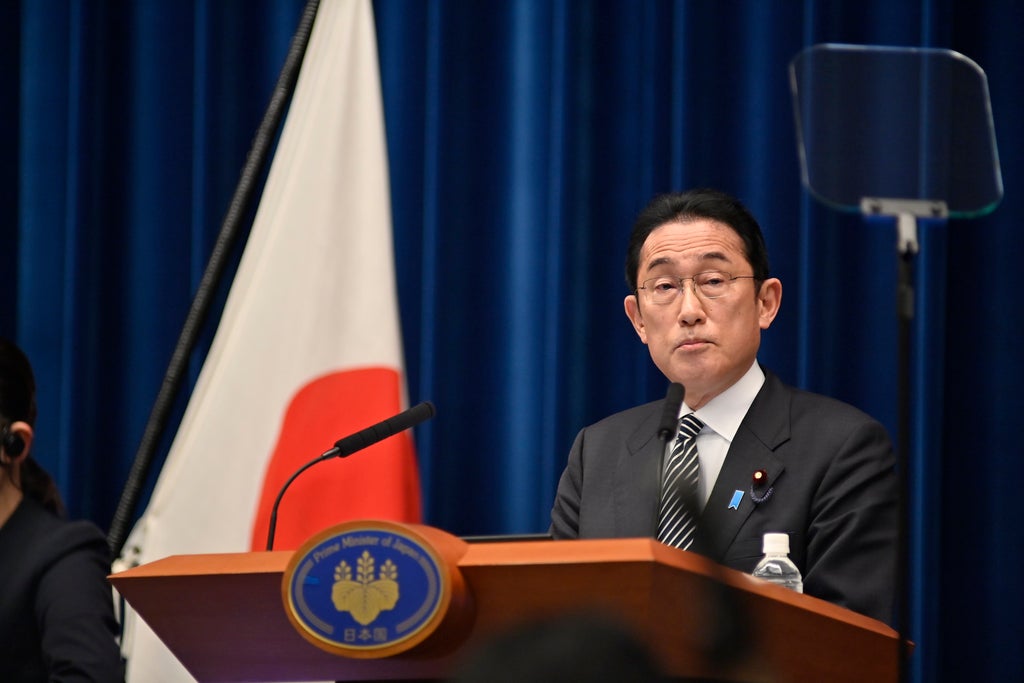
Japanese Prime Minister Fumio Kishida indicated his willingness Tuesday to mend badly strained ties with South Korea, saying relations between the two U.S. allies are crucial when the rules-based international order is threatened by Russia's invasion of Ukraine.
“There is no time to waste in improving Japan-South Korea relations,” Kishida said he told a delegation sent by South Korean President-elect Yoon Suk Yeol. “Strategic cooperation between Japan and South Korea, and among Japan, the U.S. and South Korea, is more necessary than ever."
The seven-member delegation sent by Yoon, who takes office on May 10, arrived in Tokyo on Sunday for policy talks with Japanese officials. Yoon has expressed his intention to improve the two countries' ties, which have plunged to their lowest levels in years over disputes stemming from Japan's actions during its 1910-1945 colonization of the Korean Peninsula.
Their latest disputes were triggered by South Korean court rulings ordering Japanese companies to pay compensation for their abusive treatment of Korean forced laborers during World War II.
Delegation head Chung Jin-suk told reporters after their meeting with Kishida that the two sides agreed to develop future-oriented relations for mutual benefit.
Kishida told reporters he will carefully assess the discussions with the delegation and the position of South Korea's new administration.
Japan continues to insist that all wartime compensation issues between the countries were settled under a 1965 treaty and has accused South Korea of breaching international law. The row also led to trade disputes and threatened their security cooperation with the United States amid concerns about China's growing military strength and influence and North Korea's nuclear and missile development.
“In order to restore Japan-South Korea relations to a healthy relationship based on Japan’s consistent position, Ï would like to communicate closely with the new administration under President-elect Yoon,” Kishida said. “Keeping a promise should be the foundation of the relationship between the countries.”







